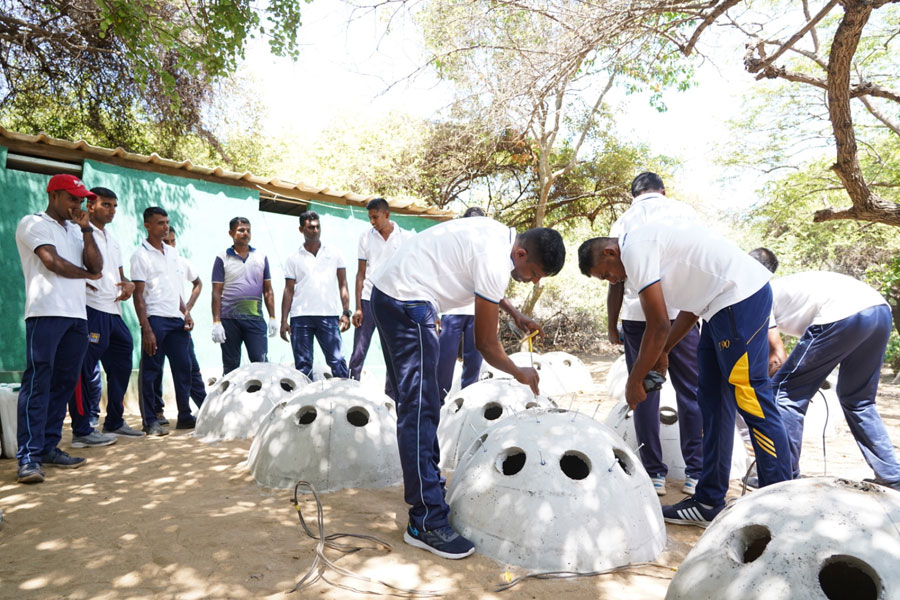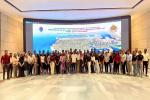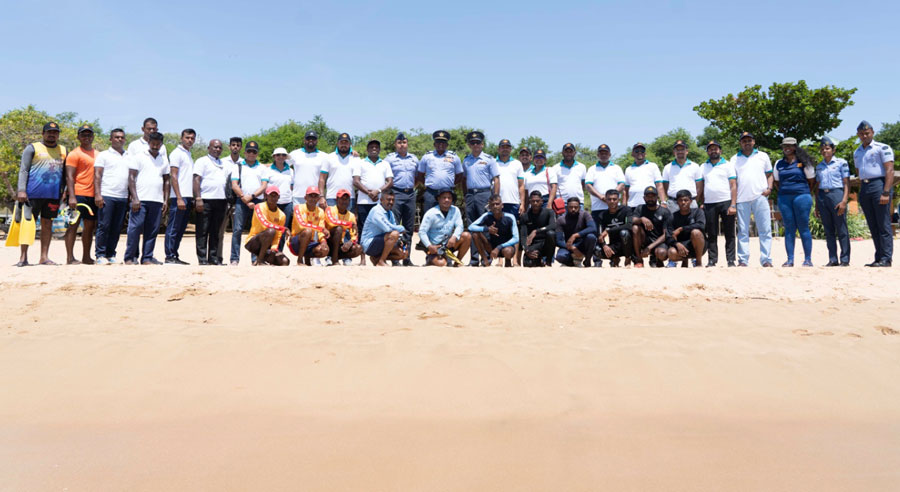The two-day event commenced with placing 20 concrete reef balls on the seabed on the first day, followed by an awareness session and the planting of live corals on the concrete reef balls on the second day.
These efforts are part of a broader initiative to enhance oceanic biodiversity and mitigate the impacts of climate change by planting new live corals into deteriorating reefs, with the reef balls strategically placed underwater to foster a healthier marine environment.
Dr Lalith Weragoda, Group Chief Human Resource Officer at Sampath Bank, stated,
“Our coral restoration projects are essential to improving ocean health and countering the effects of climate change.
By planting new live corals into dying reefs and deploying reef balls underwater, we aim to create a more resilient ocean ecosystem.
This initiative aligns with the Bank's ethos on oceanic ecosystem restoration, acknowledging its commitment to environmental conservation and sustainable practices.”
He added, “Sampath Bank remains committed to sustainability, continually seeking to generate value for both the environment and the community.
The ‘A Breath to the Ocean’ initiative is a testament to the Bank's dedication to going beyond the traditional triple bottom line approach, reflecting its significant contributions to environmental conservation.
This initiative builds upon previous successful efforts, including tank restoration projects through the Wewata Jeewayak initiative.”
Reflecting its ongoing dedication to environmental conservation, Sampath Bank's initiatives like ‘A Breath to the Ocean’ highlight its commitment to making a substantial impact.
Launched in 2022 to conserve marine biodiversity, this programme has enabled the Bank to conduct three coral reef restoration projects, guided by Professor Terney Pradeep Kumara of the University of Ruhuna, by transplanting live corals into concrete reef balls at strategically important locations along the country's southern and eastern coasts.
The recently completed projects in Bandaramulla – Mirissa, Dutch Bay – Trincomalee, and Batheegama – Dickwella mark significant steps toward protecting and rejuvenating marine life.
Designed for long-term sustainability, these projects aim to combat climate change and support eco-tourism, fostering economic development at the grassroots level.
As Sampath Bank embarks on this journey to restore and protect oceanic ecosystems, individuals, organisations, and communities are invited to join this mission.
Together, a healthier, more resilient ocean can be created for future generations, and through sustained efforts and collective commitment, the tide can be turned, ensuring that marine environments thrive once again, making waves for a better, bluer tomorrow.
























